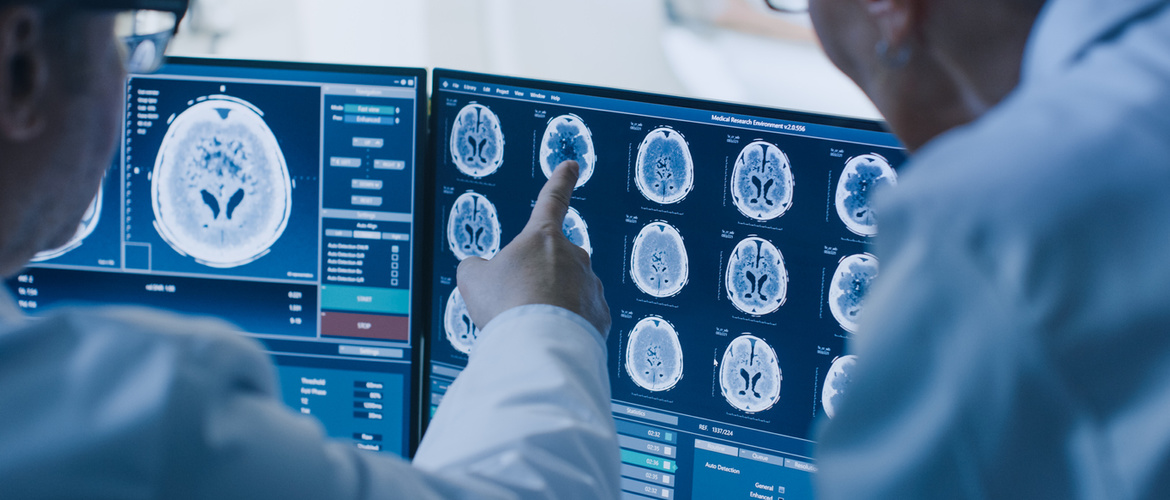
Choose a channel
Check out the different Progress in Mind content channels.

Progress in Mind

Predominant depressive polarity is associated with reduced cortical thickness and smaller hippocampal volume, especially in the subiculum and presubiculum. People with mixed or manic polarity do not show the same differences when compared to healthy controls, Delfina Janiri (Sapienza University, Rome) told EPA 2021.
The international ENIGMA (Enhancing Neuroimaging Genetics through Meta-Analysis) network has reported that bipolar disorder (BD) is associated with subtle but significant cortical gray matter thinning in frontal, parietal and temporal regions of both hemispheres when compared with the brains of healthy controls.1
Another ENIMGA study reported decreased volume in subcortical features, notably the hippocampus and amygdala in people with BD.2
Neuroimaging reveals biological underpinnings linked to clinical variability
Delfina Janiri and colleagues have extended this neurogimaging work by asking whether such differences between people with BD and controls relate to predominant polarity.
Differences are driven by depressive polarity
They therefore compared high resolution MRI scans of 150 healthy controls against those from 172 outpatients with BD, 32 of whom had predominantly depressive polarity, 32 predominantly manic or hypomanic polarity, and 108 in whom polarity was uncertain.3 The groups did not differ significantly in duration of illness or pharmacological treatment.
Patients with depressive and uncertain polarity had reduced hippocampal volumes in all subfields compared to healthy controls, while those with manic polarity did not.
Interestingly, the presubiculum and subiculum volumes of people with predominantly depressive polarity were smaller than those with manic polarity.
The principal outflow of the hippocampus, ie its multiple connections with areas in involved in emotion and reward, is through these areas, Dr Janiri noted. And in depressed patients, we see loss of ability to regulate emotion and modulate reward systems according to the environment.
Predominant polarity has neurobiological correlates, as well as influencing disease course and treatment response
Polarity as a course specifier in bipolar
In a second study, Delfina Janiri and colleagues investigated the role of polarity in determining the cortical thinning previously noted (and now confirmed) when people with BD are compared with healthy controls.
Preliminary evidence again suggests that it is patients with predominantly depressive polarity who are driving the difference.
The hippocampal and cortical changes seen could influence the clinical course and responsiveness to treatment of BD patients with predominantly depressive polarity, she suggested. But longitudinal studies are needed to clarify their role.
Understanding of biological mechanisms related to BD is also advancing rapidly in other areas, as is show by the largest and most recent genome-wide association study -- including more than twenty thousand cases and thirty thousand controls – which identified twenty new significant loci.4
Gene sets seemingly involved in BD include some related to insulin secretion and endocannabinoid signaling. Compared with bipolar I disorder, which appears genetically related to schizophrenia, GWAS evidence links bipolar II more closely to major depression. This is consistent with clinical evidence that type II BD is associated with a depressive onset of BD and greater suicidality.5
Our correspondent’s highlights from the symposium are meant as a fair representation of the scientific content presented. The views and opinions expressed on this page do not necessarily reflect those of Lundbeck.
1. Hibar DP et al. Mol Psychiatry 2018; 23: 932-942
2. Hibar DP et al. Mol Psychiatry 2016; 21: 1710-1716
3. Janiri D et al. Bipolar Disorders 2020; 22: 490-7
4. Eli A. Stahl EA et al. Nature Genetics 2019; 51:793-803
5. Carvalho AF et al. J Affect Disord 2014; 163: 56-64